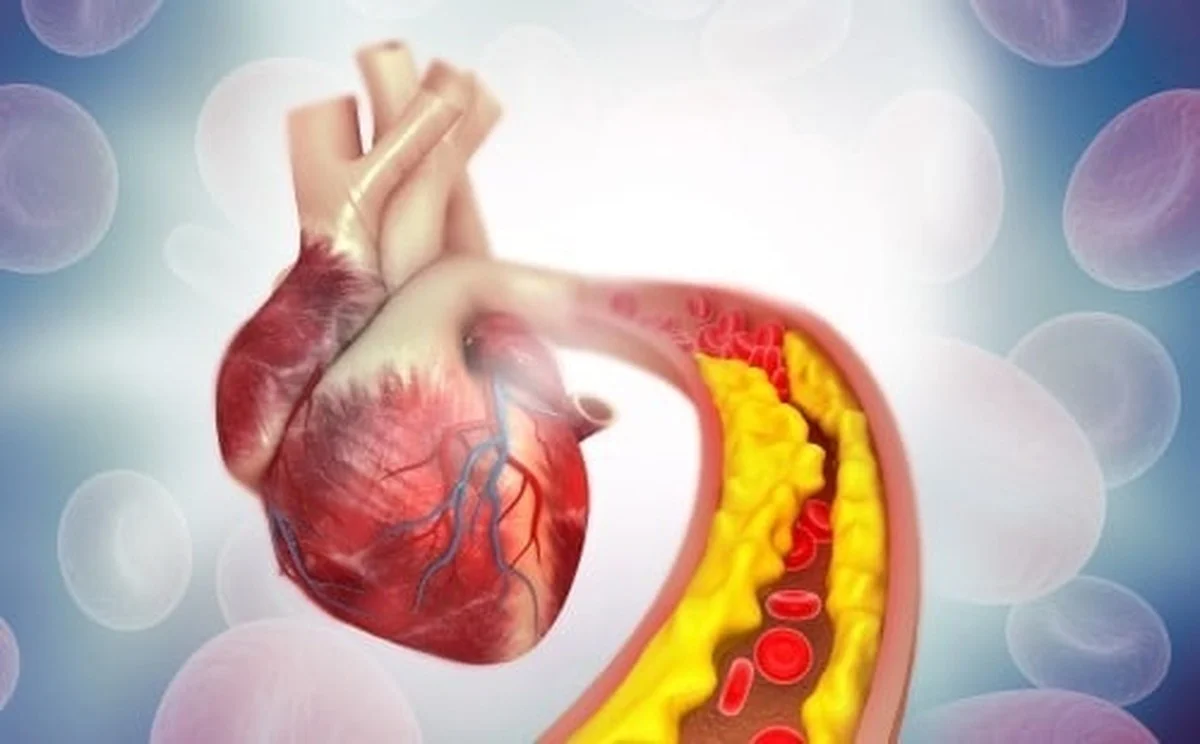17/04/2025
17/04/2025

LONDON, April 17: Cholesterol is a complex but essential topic in health. It is a waxy, fat-like substance that the body needs to build cells and produce vitamins and hormones. However, excessive cholesterol in the body can lead to serious health issues, including heart disease.
There are two primary types of cholesterol: LDL and HDL. Low-density lipoprotein (LDL), often referred to as "bad" cholesterol, can accumulate as plaque in the arteries, increasing the risk of cardiovascular problems. In contrast, high-density lipoprotein (HDL) is known as "good" cholesterol because it helps remove excess cholesterol and plaque from the bloodstream.
Managing high cholesterol can be challenging, especially with the abundance of conflicting information about diet and nutrition. However, incorporating heart-healthy foods into your daily meals can make a significant difference. Interestingly, some foods often considered “bad” can actually support healthy cholesterol levels. Here are a few:
1. Oats
Although oats are sometimes dismissed for being high in carbohydrates, they are actually rich in fiber, particularly soluble fiber. This type of fiber forms a gel-like substance in the digestive tract, which slows digestion and helps prevent spikes in blood sugar levels. Soluble fiber can also bind with cholesterol and fat particles, reducing their absorption and thereby helping to lower cholesterol levels.
Half a cup of dry oats contains around 4 grams of fiber and 5 grams of protein. Starting your day with a bowl of oatmeal topped with berries or yogurt not only boosts your fiber intake but also adds heart-healthy vitamins and minerals.
2. Vegetable oils
Despite negative claims circulating on social media, research does not support the idea that vegetable oils are harmful to health. In fact, oils like canola have been linked to improved heart health and lower LDL levels. Replacing butter or other saturated fats with canola oil can be a heart-healthy choice due to its low saturated fat content and high levels of polyunsaturated fats, including alpha-linolenic acid (ALA), which may help manage cholesterol.
Canola oil has a neutral flavor and works well for salad dressings, grilling, baking, and stir-frying.
3. Fatty fish
Concerns about mercury in large fish are common, but many fatty fish varieties are both low in mercury and beneficial to health. Fish such as salmon, tuna, sardines, mackerel, and trout are excellent sources of protein and rich in omega-3 fatty acids.
Regular consumption of fish has been consistently associated with a reduced risk of heart disease. Omega-3s help lower triglyceride levels, may slow plaque buildup in arteries, and reduce inflammation in the body.
4. Fruit
Some people avoid fruit due to its sugar content, but it’s important to understand that the sugars in fruit are natural, not added. Many fruits are high in fiber, particularly soluble fiber like pectin, which is found in apples (with the peel), citrus fruits, and strawberries.
Incorporating more fruit into your diet supports healthy cholesterol levels and adds essential vitamins and minerals. Fruits can be enjoyed in a variety of ways—added to cereals, smoothies, and salads, or eaten on their own as snacks.
5. Beans
Beans are sometimes misunderstood due to their carbohydrate content, but they are high in complex carbohydrates and rich in fiber—especially soluble fiber, which digests slowly and helps keep you full longer. This also supports stable blood sugar levels and better heart health.
There are numerous types of beans, including black beans, kidney beans, navy beans, lentils, chickpeas, and black-eyed peas. They’re affordable, widely available, and easy to prepare—especially canned beans. For a healthier option, rinse canned beans to reduce sodium and choose "no salt added" varieties when possible.
6. Avocados
Avocados often raise concern because of their fat content, but they are high in monounsaturated fats—the kind that can help improve heart health. A single avocado contains about 10 grams of fiber and has been shown to increase HDL while lowering LDL cholesterol levels.
Research has indicated that substituting avocados for saturated fat sources like butter, cheese, or processed meats can significantly reduce the risk of heart disease. Avocados are versatile and can be enjoyed in salads, sandwiches, on toast, with eggs, or as a dip.
While managing cholesterol may seem complicated, especially with so much contradictory dietary advice, incorporating these nutritious, fiber-rich, and heart-friendly foods into your daily routine can support healthy cholesterol levels and promote overall well-being.


